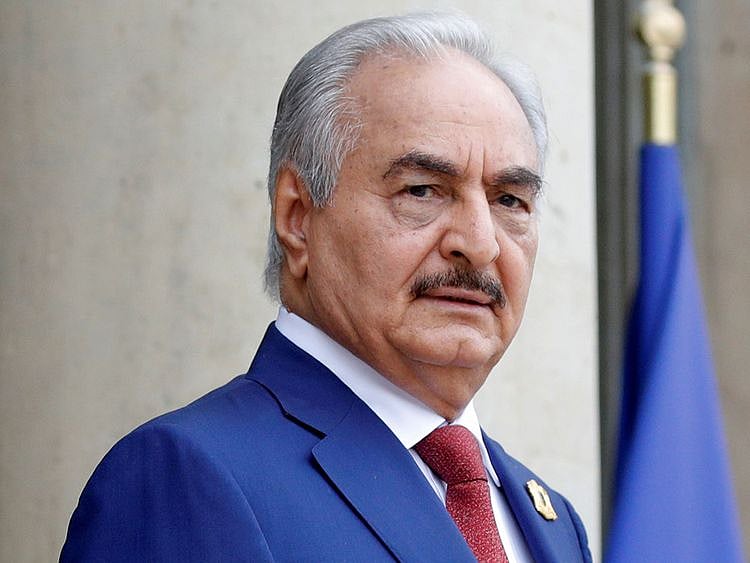Abu Dhabi: Libyan military commander Khalifa Haftar will press on with his five-month offensive to capture Tripoli despite mounting international calls for a ceasefire and talks, according to his spokesman.
In an interview in Abu Dhabi, General Ahmed al-Mismari dismissed the internationally-recognized prime minister, Fayez al-Sarraj, as powerless and negotiations as futile.
“The man was unable to sign a single paper,” he said of Sarraj. “He would always give the excuse that he needed to hold consultations. We’ve exhausted all good offices.”
Fight against extremists
Haftar, who commands the Libyan National Army from his stronghold in the country’s east, says he’s fighting to rid the capital of Islamist extremists. The Sarraj government denies it’s propped up by such groups, pointing to counter-terrorism agreements with several Western countries as evidence.
Mismari’s comments reflect the difficulties the United Nations faces in bringing the sides to the table and ending a conflict that has drawn in regional and international powers vying to shape the future of the oil-rich country.
Sarraj’s government has ruled out talks with Haftar.
The Tripoli campaign was launched in April, weeks ahead of a scheduled UN-sponsored conference to lay the ground for a national unity government and elections.
Pressure for a peaceful settlement has steadily grown as Haftar’s forces remain bogged down in the capital’s outskirts and the death toll mounts, with G-7 nations calling for a cease-fire at a recent summit.
'US understands Libya realities'
Mismari said that U.S. President Donald Trump had showed understanding for the LNA’s stance in an April phone call with Haftar.
“It was a long conversation and a very important conversation, the call represented U.S. recognition of the role of the armed forces in the war on terrorism,” Mismari said.
“There was an affirmation by the American side of their understanding for the reality of matters in Libya.”
While U.S. officials at the time said the call indicated support for the Libyan commander, for the most part, Washington, with more pressing priorities elsewhere in the world, has stayed on the sidelines of the conflict.
Libya quagmire
Libya has faced years of turmoil since 2011, when NATO-backed rebels overthrew Muammar Gaddafi and the country became fractured by infighting. The battle for Tripoli has killed more than 1,000 people, mostly fighters, and displaced tens of thousands of ordinary Libyans.
The UN says neither side has a chance of winning and has been pushing for an international conference in September to cement a ceasefire followed by talks that would reform the country’s financial institutions, including the central bank.
Mismari said the bank doesn’t send a fair share of the country’s oil revenues to the east, home to much of the OPEC state’s fields and terminals. He said it wouldn’t be possible to overhaul key institutions without a Haftar victory.
“Now we need to reform people’s morals and correct sick minds and this needs a rifle and a prison,” he said of rivals in Tripoli.
“But after a national unity government takes hold, and the state is set up, many matters will be brought up.”
Sign up for the Daily Briefing
Get the latest news and updates straight to your inbox
Network Links
GN StoreDownload our app
© Al Nisr Publishing LLC 2026. All rights reserved.
